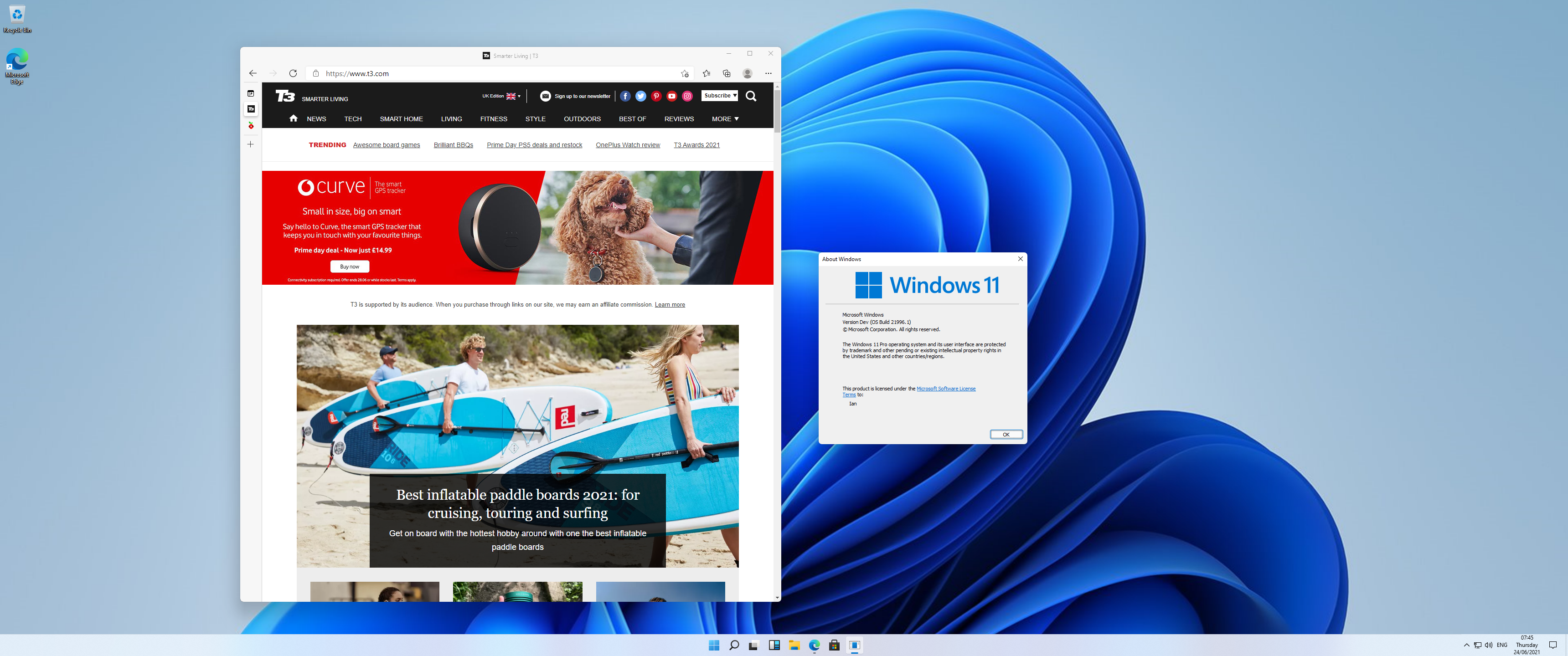Play by Microsoft's rules or no Windows 11 updates for you
Microsoft won't support older Windows 11 PCs with updates

Get all the latest news, reviews, deals and buying guides on gorgeous tech, home and active products from the T3 experts
You are now subscribed
Your newsletter sign-up was successful
I’m still very excited about Windows 11 in general. There are some much-needed updates coming and a fresh new look that will be a welcome addition to the operating system. However, my irritation at Microsoft’s attitude to its customers and the self-inflicted pain it’s going to unleash when the OS launches on October 5.
One of the big problems with Windows 11 is the decision to place a number of restrictions in place around the computers that can install it. Some fairly recent processors won’t be supported and anyone without a Trusted Platform Module v 2.0 will also be locked out. However last week it emerged that Microsoft wouldn’t prevent people installing the OS on older hardware.
This was good news, the company wants users to have a recent processor and a TPM so that it can help their machines stay secure. That’s great, and I support that. However, preventing people from updating to Windows 11 is illogical and won’t help people fix security. Instead it will just mean Windows 11 doesn’t get the traction that 10 did, and people will carry on with an older OS until they’re forced to change.
- Windows 11 will be amazing, but why is Microsoft making things difficult?
- Windows 11 killer feature sees native support for Android apps
Even though Microsoft seemed okay with people installing Windows 11 on unsupported hardware, possibly through some of the existing workarounds, it then emerged that the company would not support those devices with updates, drivers and bug fixes. This is absolutely absurd, and surely must go against its desire to get people using more secure computers. If someone doesn’t have a TPM, preventing them from getting important updates just seems to be making everything worse.
As I’ve previously said, I do think Windows 11 will be fantastic but Microsoft has a massive problem on its hands here. It is making the transition harder than it needs to and excluding people who really shouldn’t be locked out of updates. Cutting off recent processors like Ryzen 1 will either force users to find workarounds, or will contribute to an already problematic e-waste pile that we need to address urgently. What’s more, Microsoft is probably going to damage prices for used components that aren’t compatible, which will further increase the e-waste situation.
Not every user of Windows 11 is going to be a high-end gamer or work for a company with loads of IT budget to spend on new hardware. Locking out these people puts them on an older operating system for longer, which may have greater security vulnerabilities. It also deprives them of helpful new features that could make them passionate about Windows all over again.
Add to that the absolute confusion around who can and can’t upgrade and I think Microsoft’s social media teams are going to have a very miserable launch week. At this point, there are a lot of 7th generation Intel CPU owners who won’t be able to move to Windows, and these are in machines likely sold as late as 2017. It’s a mess, an absolute mess.
Get all the latest news, reviews, deals and buying guides on gorgeous tech, home and active products from the T3 experts
Ian has been involved in technology journalism since 2007, originally writing about AV hardware back when LCDs and plasma TVs were just gaining popularity. Nearly 15 years on, he remains as excited about how tech can make your life better.